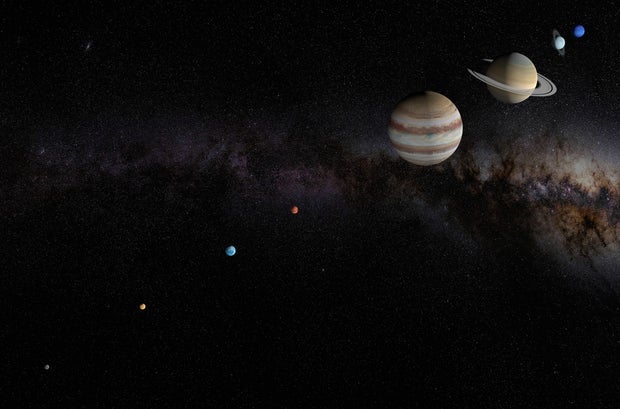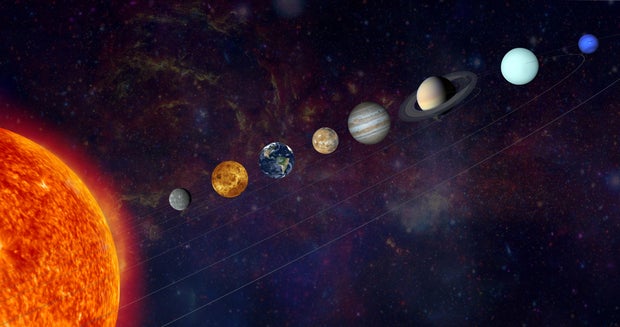Seven planets are aligning in the night sky this week, creating a brief chance to see a “planetary parade.”
Mercury, Venus, Mars, Jupiter, Saturn, Neptune and Uranus could all be visible with clear skies, but not all can be seen by the naked eye, according to Space.com and other sites that track celestial events.
For the best chances, spectators should look at the sky as soon as the sun sets. That’s when the planets will make a brief appearance.
Which day is best will depend on the location. Tokyo started seeing the parade first, on Feb. 22, according to Star Walk, a sky-gazing app. New York will have the best view of the event on Feb. 25, Star Walk said. In other parts of the world, the phenomenon will be best visible in early March. Worldwide, the best day to see the alignment will be Feb. 28.
How to watch the planetary parade
Five planets are visible to the naked eye, according to NASA: Mercury, Venus, Mars, Jupiter and Saturn.
Mars will appear reddish and high in the sky, near the Gemini constellation, Star Walk said. Jupiter will be a bit lower in the sky, near Taurus. Venus will appear as the brightest planet in the sky, near the Pisces constellation.
Mercury will be in the constellation Aquarius, near the sun and just above the western horizon. Saturn will also be near the sun and low in the horizon, making it harder to spot, Star Walk said.
NEMES LASZLO/SCIENCE PHOTO LIBRARY
To see Uranus and Neptune, you’ll need a telescope, NASA said. Uranus will appear in the Aries constellation, and Neptune will be in Pisces, Star Walk said.
The display will only be visible for a few minutes after sunset, because the planets near the horizon — Saturn and Mercury — will be setting. Once they drop below the horizon, they will no longer be visible, but the other planets will linger in the night sky.
For the best view, head to a location with minimal light pollution and a clear view of the horizon. Clear skies will also be necessary to see all the planets.
How do planetary alignments work?
The planets in the solar system orbit the sun, just as Earth does. Every planet orbits at a different speed and distance.
During these alignments, the planets appear to be lined up from Earth’s perspective, creating the visual display, NASA said. In reality, the planets are extremely far from each other.
The planets also move very slowly, causing the multi-day timeline of the planetary parades.
NASA / Getty Images
When will the next planetary alignment be?
Lineups of four or five planets occur every few years, according to NASA. In late August 2025, four planets will be visible before sunrise, and in late October 2028, five planets will be visible at once before sunrise. Another five-planet alignment will occur in late February 2034, with the planets visible after sunset.
“In summary, while they aren’t once-in-a-lifetime events, planetary parades afford an uncommon opportunity to look up and appreciate our place in our solar system, with diverse worlds arrayed across the sky before our very eyes,” NASA says on its website.
Outside of the planetary alignments, it’s possible to spot other planets individually. Mars, Jupiter and Saturn are frequently seen in the night sky, according to NASA.








